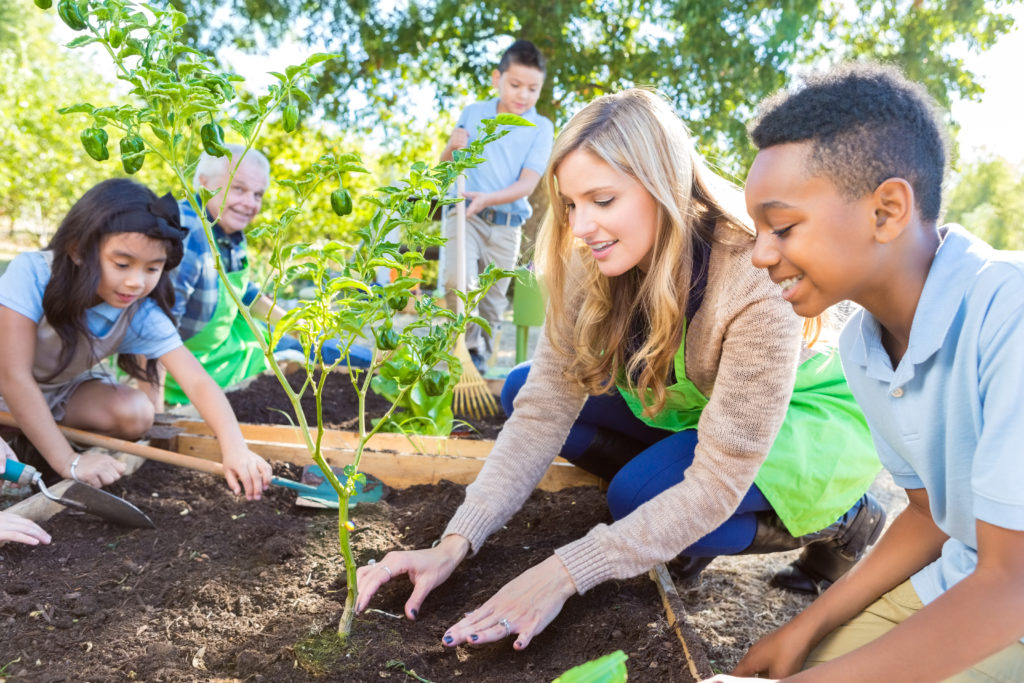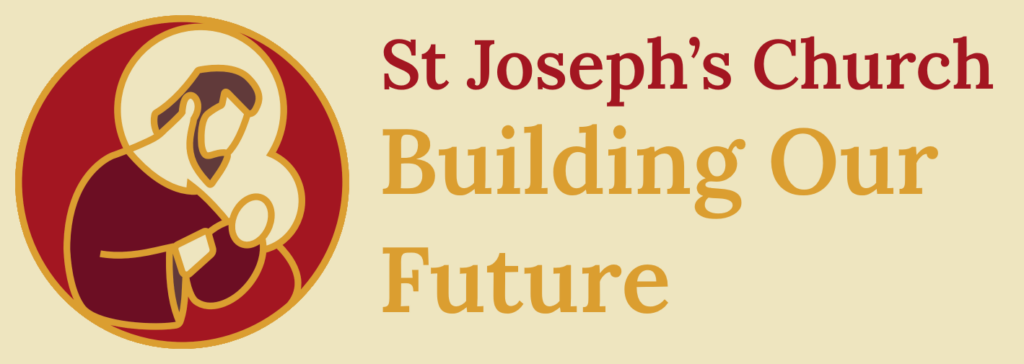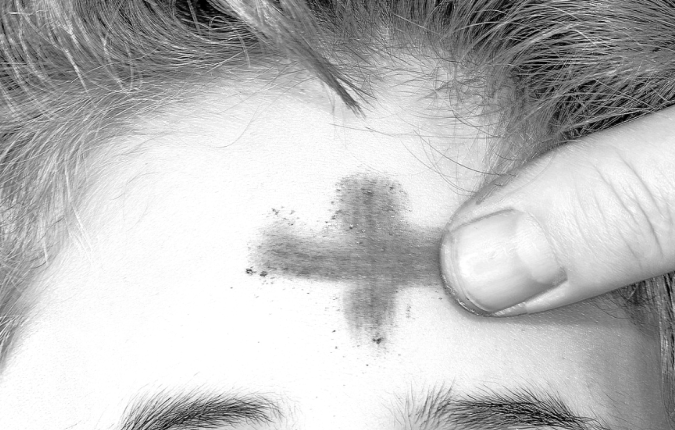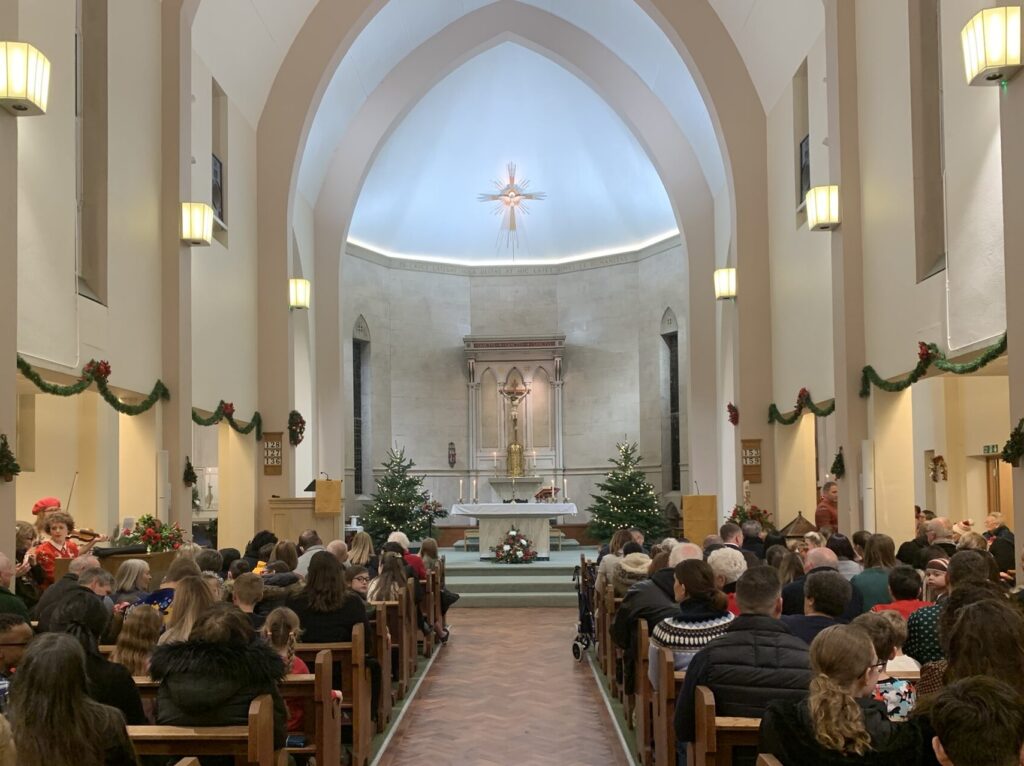Sunday 16th June was the Church in England and Wales’s Day for Life, coinciding with Father’s Day. As the 11th Sunday in Ordinary Time, the gospel recounts two parables concerning seeds, growth and the kingdom of heaven (Mark 4:26-34). This is Fr Matthew’s homily, connecting all three themes which have particular relevance with a general election on the horizon.
First of all a very happy Fathers’ Day to all who have the joy of being a father, and my prayers are with any who find this day hard. Being a father has certainly given me a special insight into the love which God our heavenly Father has for us, and a new appreciation and respect for my own late father, as well as a profound sense that however much I may love my daughter and try and be a good father, I can only be a pale imitation of the infinite one, who is the pattern of all fatherhood.
On Fathers’ Day, which is also the Day for Life in the Church, its fitting that we have a parable which relates the intricate processes of creation, to the life we are called to share in God’s kingdom.
A seed is a marvellous thing. A tiny package, that with the right conditions – nutrients, water, sunlight – will grow into a plant many times its size. Science can explain how it all works – but this need not, should not, detract from our wonder. For all the talk of a conflict between science and faith, the truth is that the more we learn about the workings of the world, the more in awe we should be at the God who brought everything into being.
When Jesus takes a seed and uses it to illustrate something about the kingdom of God, this sense of wonder is surely meant to be part of our response.
This image says something about the extraordinary power of divine grace, to accomplish a transformation beyond our imagining. And it says something about the extraordinary potential for greatness that is found within this present creation.
Paul reminds us that we should live not for this world but the next. But the two are not totally disconnected. Our life in this world is a preparation for the next. And so we must allow the kingdom of God, the seed of which has already been implanted within us, to germinate and take root in our hearts. Just as the seed contains something that will far exceed its present size, so our hearts are made for God and not for the limited things of this world.
God’s kingdom is that realm where all things are in accordance with God’s will and therefore all things attain their true and ultimate good, and give glory to him.
God’s kingdom is not yet fully realised in this world, or in our hearts, because all things are manifestly not in accord with his will. Sin is still a reality around us and within us; and yet Jesus came to establish God’s kingdom, and like a seed that is planted, it will gradually emerge as our lives become more fully centred on him.
There is something else I think this parable has to offer us. The seed is not just something which has potential. It already contains within itself what it will become and that is why it is such a source of wonder.
So too with the human person. Every human life has infinite value not only because of what it might become, but because of what it is.
At the beginning of life, some people might describe a baby in the womb as a potential human person – but not yet a person in their own right – and for that reason the law gives only limited rights and protection to the unborn. At the other end of life, people might say, a person has no more potential, they can’t achieve anything more, their life has no more value.
The reason why the Catholic church holds to positions which are increasingly against the grain of mainstream view, comes from a very simple conviction: that every human life, at every stage, from the moment of conception onwards, is of immeasurable value. The right to life does not depend on any human laws: it belongs to every human person simply by virtue of their being created as a unique person, infinitely loved by God.
As followers of Jesus Christ, we are called to bear witness to the truth of God’s love. We do not always value others as we should. Sometimes Christians and clergy especially have lacked empathy and been overly judgemental or harsh. But nevertheless we are called to speak the truth, gently, with compassion. Not to condemn or judge, but to remind people of that fundamental truth which is so easily forgotten. Life is of value, in and of itself.
It is because every single life is of value, that we should be saddened every time we come across cases where human dignity is denied and trampled on. Pope Francis has said we should pray for the gift of tears. There are many evils in this world that are an outright attack on the dignity of human life and we should not be indifferent. It brings shame on the human race that some should lack the basic necessities of life because of the greed of others; or that even today people should be treated like slaves; or lose everything because they are on the wrong side of a conflict not of their making. It is utterly wrong that people should be denied their humanity because they are old, or sick, or disabled, or dependent on others, or too young to be considered a person in their own right. These things are all signs that God’s kingdom is not yet fully established. And though we can’t fix everything ourselves, we certainly can stand up and bear witness to the truth with our words and our actions, and with a forthcoming election we should not let these issues be forgotten.
Our good, our ultimate happiness, is to be found in embracing God’s will. Each of us has been made with the capacity to know and love God, and so attain that ultimate and eternal good. We have been made that way out of love, and it is the love of God and the abundant generosity of his grace that will enable us to become what we are meant to be: fully alive in his kingdom of unending love.
Fathers – together with the mothers of their children – should not forget how extraordinary it is that God invites us to share in his work of creation; his outpouring of fatherly love. It is a privilege beyond words and an awesome responsibility. Parenthood certainly requires sacrifice; but as we know, this is of the essence of genuine love; and love that gives itself away only increases.
May we all hand on our faith to others, unashamedly. And may we do everything in our power to promote the dignity of life, and bring others to share in the fullness of life in the kingdom of God.
* * *
The Bishops of England and Wales have published a message for the Day for Life focusing on the importance of dignity at the end of life, in the face of increasing calls to for euthanasia. You can read it and other material here: CBCEW Day for Life
On the same website you can find a guide to a number of issues to consider in the run-up to a general election: CBCEW General Election
Resources for voters have also been produced by the Catholic Union and CAFOD
